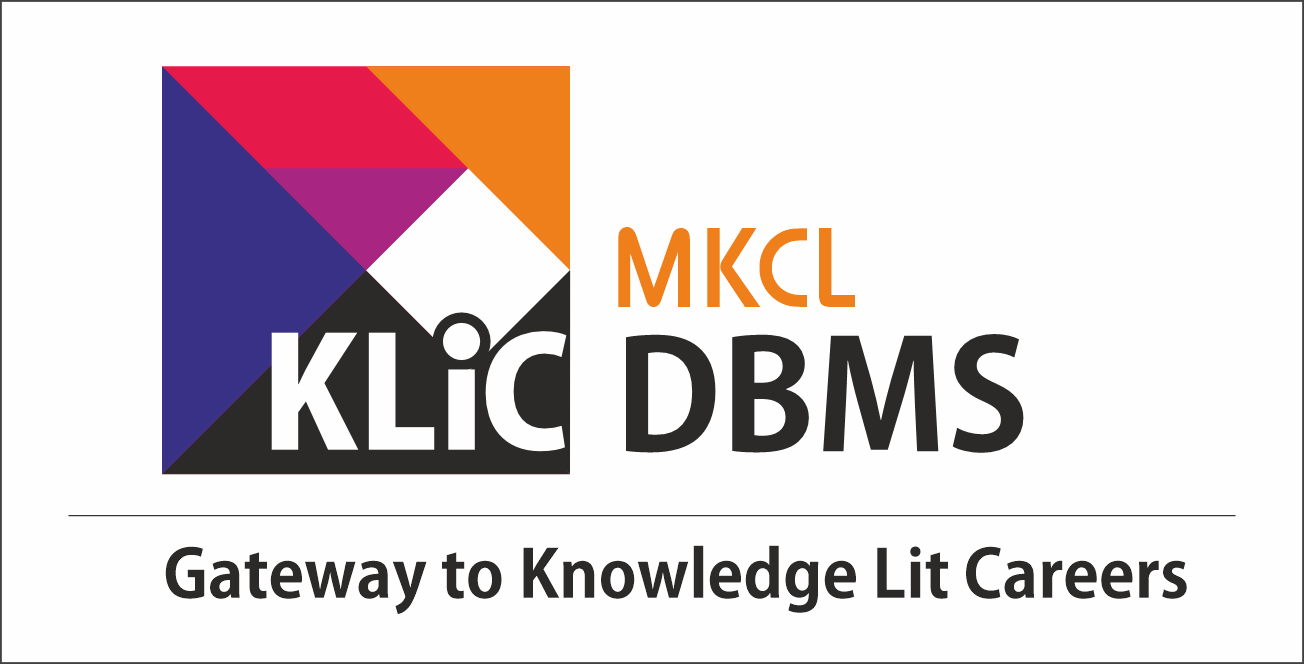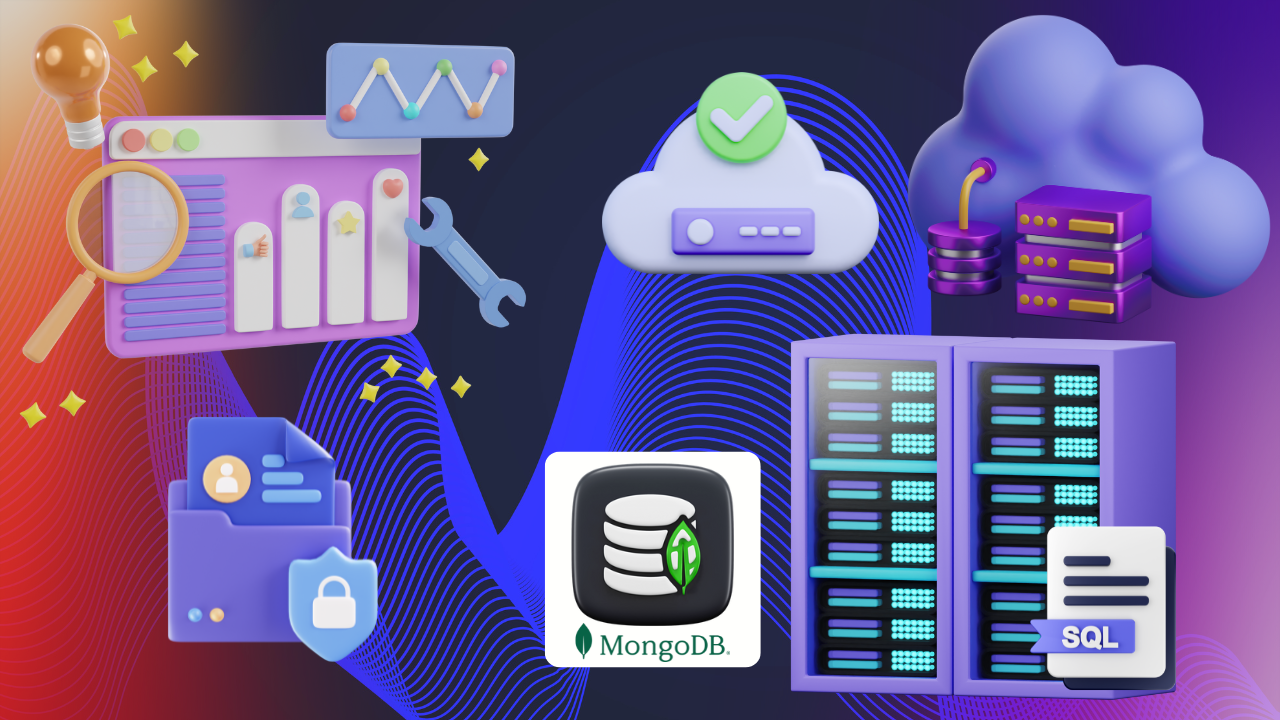- In this course, you will learn to:
- Identify the purpose and benefits of using databases for data storage, retrieval, and management
- Explain the effectiveness of databases in enhancing efficiency and organization in various applications
- Summarize the effectiveness of the database design in upholding data integrity and minimizing redundancy
- Demonstrate SQL skills for querying databases
- Examine proficiency by creating accurate and valuable reports through database querying
- Explain database security and administration practices
- Find techniques for managing user access and implementing security protocols
- Arrange the effectiveness of database security measures in data protection and administration practices
- Identify techniques for optimizing database performance (indexing, query analysis, and configuration)
- Differentiate non-relational databases from traditional relational databases, understanding their unique characteristics
- Reorganize knowledge of non-relational databases to make informed database selection decisions
- Describe data integration and migration techniques for transferring data between databases and systems
- Identify challenges in handling big data in distributed environments
- Demonstrate data governance principles and compliance requirements for database management
- Predict the importance of data privacy, ownership, and regulatory compliance
- Organize the ethical considerations of database management (data privacy, confidentiality, and responsible data handling)
- Categorize ethical considerations in real-world database management to ensure data privacy and confidentiality principles are upheld

Database Management Fundamentals
Gain foundational knowledge of databases, structures, and queries. Learn to manage, retrieve, and update data effectively.
KLiC Certificate in Database Management Fundamentals
Introduction
What you'll learn ?
- At the end of this course, learners will be able to:
- Illustrate fundamental database concepts for data storage, retrieval, and management
- Compare the importance of databases in various applications
- Review skills to design relational databases with data integrity and minimal repetition
- Construct the significance of table structures, primary keys, foreign keys, and normalization for effective database design
- Examine skills in writing and using SQL statements for various database tasks
- Utilize SQL queries to retrieve, insert, update, and delete data
- Create meaningful reports from databases using SQL
- Modify knowledge of database security and administration practices
- Review the importance of managing user access and implementing security protocols
- Construct techniques to optimize database performance (indexing, query analysis, configuration)
- Formulate these techniques for faster and more efficient data processing
- Prepare the concepts of non-relational databases like NoSQL and document-oriented databases
- Develop skills in data integration and migration between databases and systems
- Utilize the skills to integrate and migrate data while ensuring data integrity and consistency
- Interpret big data concepts and distributed databases
- Differentiate challenges in managing large-scale data in distributed environments
- Assess data backups efficiently to protect against data loss
- Manage the importance of data privacy, ownership, and regulatory compliance
- Formulate principles for responsible and ethical database management
- Prepare practical experience in designing, implementing, and managing databases in real-world projects
- Construct data privacy, confidentiality, and responsible data handling
Syllabus
- Service and Services Marketing Introduction
- Definition of Service
- Types of Processing Services
- Types of Contact Services
- Reasons Behind the Growth of the Service Industry
- Definition of Intangibility of Services
- Comprehension Round
- Intangibility Spectrum
- Features of Services
- Why Focus on Services
- Definition of Service
- Comprehension Round
- Definition of Service Marketing
- Classification of Service Marketing
- Examples of Services
- Importance and Significance of Service Marketing
- Problems in Service Marketing
- Service Marketing Tringle
- Who uses Services Marketing?
- Using Services Marketing?
- Career in Service Marketing
- Service and Technology Introduction
- Importance of Payment Gateways
- Ways in which Service Technology Works
- Benefits of Technology Enabled Services - Capital Efficiency
- Flexibility and integration
- Technology Enabled Services
- Evolution of communication: Telephone
- Television Shopping Channels
- Age of Technology Services
- The Information Age
- Evolution from Personal Service to Automation & Self Service
- The rise in consumer data:
- Disadvantages of Technology Enabled Services - Loss of Jobs
- Phishing - Definition of Phishing
- Explanation of Product
- Definition of Service Characteristics
- Example of Service Interaction
- Old and New Perspective of Service
- Services and Marketing
- Goods vs Services
- Characteristics of Services
- Intangibility
- Heterogeneity
- Solutions to Overcome Challenges in Heterogeneity
- Inseparability
- Perishability: Definition and Challenges
- Services Marketing Mix
- Traditional Marketing Mix
- Product
- Example of Product Development
- Pricing
- Place
- Promotion
- Extended or Expanded Marketing Mix for Services
- Old and New Perspective of Marketing Mix
- Physical Evidence
- Process
- People
- The Seven Ps of Services Marketing
Certificate
- MKCL provides certificate (for 30/60/90 hours courses) to the KLiC learner after his/her successful course completion.
Academic Approach
The Academic Approach of the course focuses on the “work centric” education i.e. begin with work (and not from a book !), derive knowledge from work and apply that knowledge to make the work more wholesome, useful and delightful. The ultimate objective is to empower the Learner to engage in socially useful and productive work. It aims at leading the learner to his/her rewarding career as well as development of the society.
Learning methodology
- Learners are given an overview of the course and its connection to life and work.
- Learners are then exposed to the specific tool(s) used in the course through the various real-life applications of the tool(s).
- Learners are then acquainted with the careers and the hierarchy of roles they can perform at workplaces after attaining increasing levels of mastery over the tool(s).
- Learners are then acquainted with the architecture of the tool or Tool Map so as to appreciate various parts of the tool, their functions and their inter-relations.
- Learners are then exposed to simple application development methodology by using the tool at the beginner’s level
- Learners then perform the differential skills related to the use of the tool to improve the given ready-made outputs.
- Learners are then engaged in appreciation of real-life case studies developed by the experts.
- Learners are then encouraged to proceed from appreciation to imitation of the experts.
- After imitation experience, they are required to improve the expert’s outputs so that they proceed from mere imitation to emulation.
- Finally, they develop the integral skills involving optimal methods and best practices to produce useful outputs right from scratch, publish them in their ePortfolio and thereby proceed from emulation to self-expression.
Evaluation Pattern
Evaluation Pattern of KLiC Courses consists of 4 Sections as per below table:
| Section No. | Section Name | Total Marks | Minimum Passing Marks |
|---|---|---|---|
| 1 | Learning Progression | 25 | 10 |
| 2 | Internal Assessment | 25 | 10 |
| 3 | Final Online Examination | 50 | 20 |
| Total | 100 | 40 | |
| 4 | SUPWs (Socially Useful and Productive Work in form of Assignments) | 5 Assignments | 2 Assignments to be Completed & Uploaded |
MKCL’s KLiC Certificate will be provided to the learner who will satisfy the below criteria:
- Learners who have successfully completed above mentioned 3 Sections i.e. Section 1, Section 2 and Section 3
- Additionally, learner should have completed Section 4 (i.e. Section 4 will comprise of SUPWs i.e. Socially Useful and Productive Work in form of Assignments)
- Learner has to complete and upload minimum 2 out of 5 Assignments
Courses Fee Structure from 01 July, 2025 Onwards
KLiC 30 hour course fee applicable from 01 July, 2025 all over Maharashtra| KLiC Course Duration | MFO: MKCL Share (Including 18% GST) |
ALC Share (Service Charges to be collected by ALC) |
|---|---|---|
| 30 hours | Rs. 300/- | Rs. 1,500/- |
Important Points:
* Above mentioned fee is applicable for all Modes of KLiC Courses offered at Authorised Learning Center (ALC) and at Satellite Center
* Total fee is including of Course fees, Examination fees and Certification fees
* MKCL reserves the right to modify the Fee anytime without any prior notice
* Above mentioned fee is applicable for all Modes of KLiC Courses offered at Authorised Learning Center (ALC) and at Satellite Center
* Total fee is including of Course fees, Examination fees and Certification fees
* MKCL reserves the right to modify the Fee anytime without any prior notice
